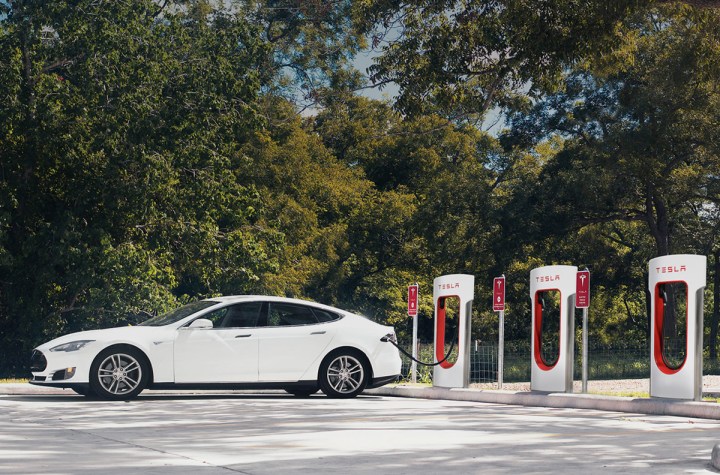
At the same time, gas station owners can see their future business disappearing. There’s not much threat to gas stations from e-cars now, but in a few decades gas stations that haven’t transformed could be quaint relics patronized only by internal combustion engine enthusiasts. So match-making between fuel stops and charging services is inevitable, and Tesla is already in conversations with a major mid-Atlantic gas station chain about adding chargers to its locations, according to The Washington Post.
The Sheetz gas station and convenience store chain, which generates almost $7 billion in annual revenue from its hundreds of locations, is talking with Tesla. Sheetz’s executive vice president of petroleum supply, Michael Lorenz, said, “We’ve had discussions with them about putting their chargers in our stores. We haven’t done anything yet, but we’re continuing those discussions.”
This isn’t Sheetz’s first EV-charging rodeo. The chain currently has e-car chargers at eight locations in Pennsylvania and North Carolina, but they don’t hook up to Teslas. Tesla didn’t comment specifically to The Washington Post about Sheetz but did issue a statement that Tesla is “actively courting” travel stopover and interim locations such as hotels, restaurants, and gas stations about installing chargers. Elon Musk mentioned such a plan during the Tesla 2016 Annual Shareholder meeting earlier this month.
As gas station stop-offs on major travel routes begin installing EV chargers, their business model for other goods and services may change. Today it takes 30 minutes to an hour for a Tesla to fully charge at a Supercharger. The time may decrease with technical progress, but even cut in half, that is an eternity for gas station convenience centers with business models based only on quick stops and fast purchases.
As The Washington Post suggested, more upscale shopping and better restaurants may be in the cards for chain fuel-stop centers, allowing them to cash in on customers whose cars are getting recharged. It also sounds like an opportunity for charging station valet services, allowing customers to finish lunch or shopping without waiting for their cars to finish charging, and allowing the centers to free up chargers for the next in line.
Editors' Recommendations
- Tesla introduces ‘congestion fee’ for Supercharger stations
- Ford EV drivers can use 12,000 Tesla Superchargers starting in 2024
- Tesla begins rolling out its fast-charging V3 Superchargers
- Google Maps now shows EV owners which charging stations are occupied




